Musician & Composer
Naked Flames
By Rodrigo Wilson — September 3, 2022
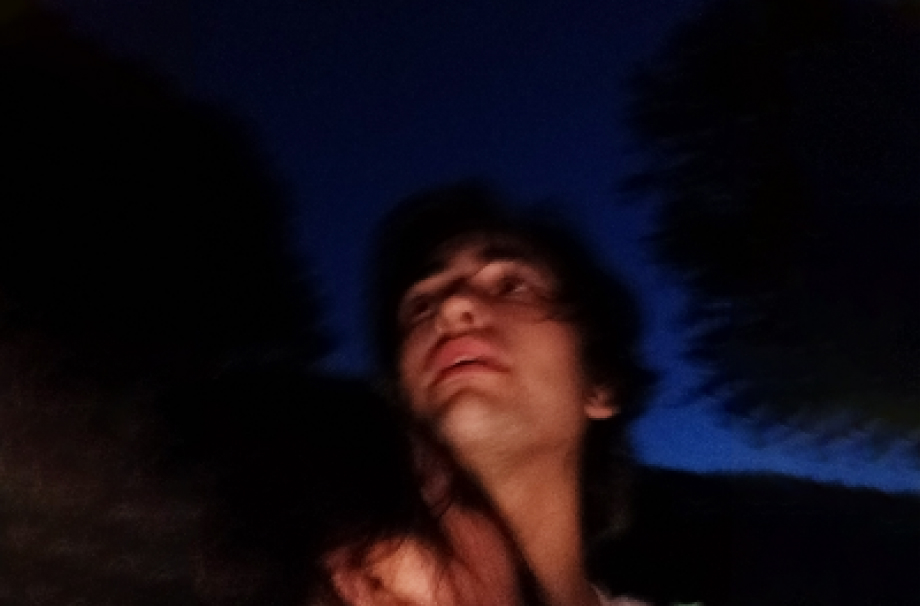
Pic. 1 All Singing, All Dancing
Prelude
In between college dissertations, tiresome working shifts and sleepless nights playing Yume Nikki, Anton slowly found himself with a revelation: he was becoming a proper music artist.
His releases, which he has been publishing for years now under the Naked Flames moniker, started in the same way as those of other incipient musicians often do: under the paradigm of the casual and relaxed. Bandcamp as a form of catharsis; a (not so) secret diary in which to pour out ideas without filters because, after all, how many people are going to actually hear it? ‘I didn’t take my music as seriously before; I was the guy that put out music just to get a few ideas out of my mind”, confesses Anton.
But 2020, with all its headache-inducing chaos, might as well be the single most important one yet for Anton’s blossoming music career. February saw the release of All Singing, All Dancing, an album that returns to ideas present in his previous works –as well as it dabbles in new influences and sounds– with a new sense of confidence that makes it hard to ignore. It certainly wasn’t just another Bandcamp experiment.
Textural and engrossing, All Singing comfortably inserts itself within the “outsider house” wave. It’s fractured dance music with a decidedly lo-fi aesthetic, wherein the glitter and shine of the dancefloor is discarded in favor of a blurry sound that has more in common with the effects of drowsiness than the sense of euphoria normally associated with the genre.
One of our favorite albums of the year so far, Anton reveals us that All Singing will be receiving a physical release soon. An ideal occasion, then, for asking him how he conceived it and what has changed now that his music isn’t a secret any longer.
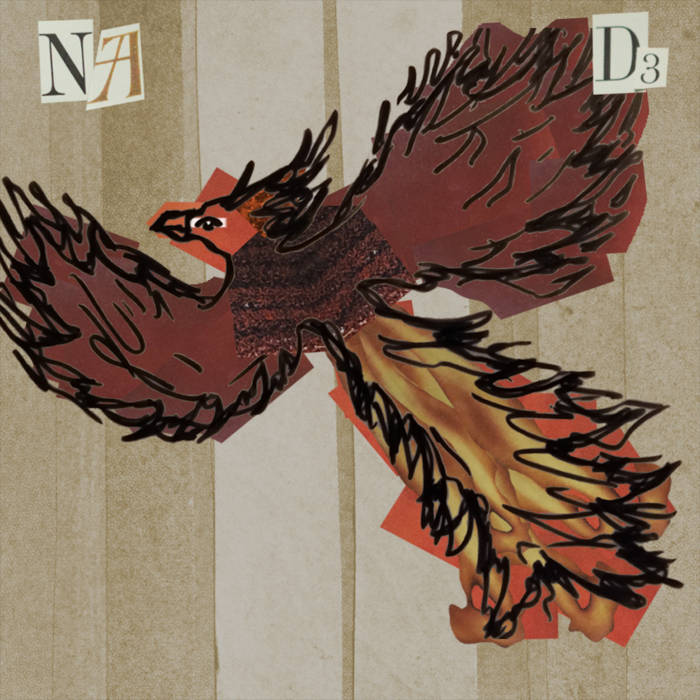
Pic. 2 “12 in 2000” Single from his catalog
Interview
All Singing, All Dancing finds itself within the realm of lo-fi or “outsider” house music, a wave that has been gaining a lot of traction these past years. How did you arrive at that sound?
Throughout my life I’ve heard a lot of outsider house tapes, getting my hands on stuff I found on sites like RateYourMusic. And when I did All Singing, I used all the knowledge I had absorbed as a listener on how to make catchy house music, and mixed it with some dub techno, which is a style I had already been working with. It’s a mixture that is not as explored.
I was also interested in crafting a sound that could be called “dub rave”. The second half of the album is very inspired by the rave subculture, by genres like acid and hard techno. I wanted to capture that sense of euphoria and mix it with dub.
The lo-fi production gives your music a blurrier sound than that of mainstream house music, which is often more polished and maximalist. How was the experience of working around a “dirty” sound pallet?
The most interesting aspect of the process of creation is that if you were to listen to the raw mixes before I “destroyed” them to turn them lo-fi, you would find that they sound empty. It feels as if something is missing. But when you get the perfect mix, the lo-fi sound fills the gaps: it doesn’t leave place for dynamics; it makes it all sound mushed together and it generates its own background ambiance.
It’s a bit cryptic: you can hear many things happening at the same time, but it’s all mixed together, and that foggy texture fascinates me. It took me quite a while to get the right sound, but I’m satisfied with it.
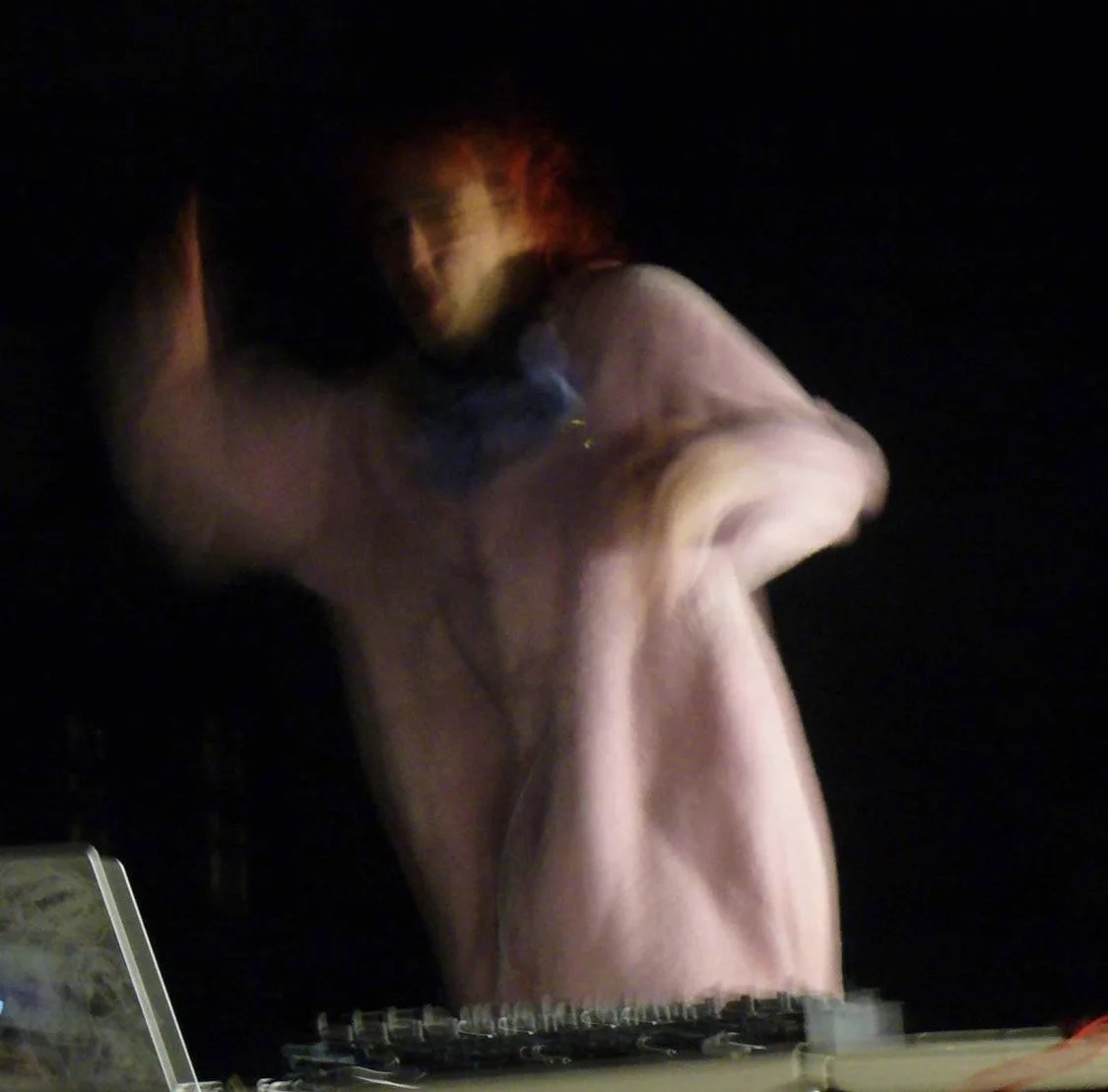
Pic. 3 blurred out but ready
“
I USED ALL THE KNOWLEDGE I HAD ABSORBED AS A LISTENER ON HOW TO MAKE CATCHY HOUSE MUSIC, AND I MIXED IT WITH DUB TECHNO. IT'S A MIXTURE THAT IS NOT AS EXPLORED.
”
Before putting out All Singing, All Dancing you worked with a cleaner techno sound in an album called Boring Fantasy. How different was the experience compared to All Singing?
Boring Fantasy is dub techno in its purest state. It’s much cleaner and polished than what you hear in All Singing, which is rougher. Boring Fantasy arrived in a moment in which I was full of work and many ideas came to my mind, but I couldn’t find the time to channel them. Until at one point I told myself “I’m going to make music even if I don’t have the time for it; just a couple of hours per day and see what happens”.
And I think it turned out fine. It’s a good album, although it definitely has its flaws that I was able to improve in All Singing. In fact, in All Singing I took parts of Boring Fantasy and sped them up and gave them a much more dynamic texture that fits the sound of the album. Actually, a big part of All Singing comes from unused Boring Fantasy demos.
A term that pops up a lot when you discuss your music is “texture”. Why does this element matter so much to you as a listener and musician?
In my fourth year in college, I discovered all the techno classics. I spent hours and hours listening to every single release out of Chain Reaction. I still obsess over that area of music: texture is so satisfying to me that sometimes melody can be grating to my ears and gets in the way. That’s why I love something like Basic Channel’s Quadrant Dub so much: it’s a drone and a chord extended over 20 minutes, it’s perfect. Over and over again, without a melody distracting you from the texture.
That’s what I want to do: a repeated chord, change textures until I found the right one, and then leave it for some good five minutes. If you learn how to craft textures, you can make dub techno in a relatively quick way: in a couple of hours you have a demo to work on and master as the days go by.
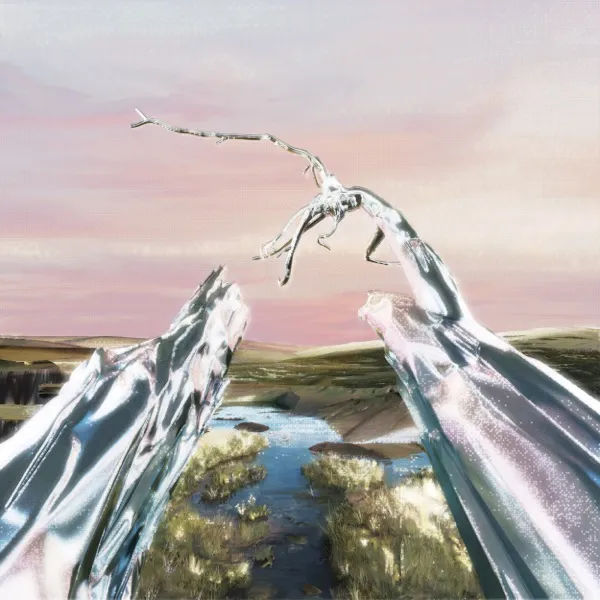
Pic. 4 Recent album drop, Miracle in Transit
Has the way in which you see yourself as an author changed following All Singing’s warm reception?
Before that, I used to do all sorts of music: from ambient to experimental rock and slowcore…I actually didn’t know exactly what I wanted to play. Whenever I discovered a new genre, it felt like a revelation: “wow, rock is the best!, wow, drone is the best!…” and I would jump from one direction to the other. I didn’t take my music as seriously: I was the guy that liked a lot of music styles and tried to see if I could play them. That changed when techno became “my thing”.
I haven’t told this to anyone else, but since it’s an interview, I think it’s the right time to share it. It has been confirmed that All Singing will be coming out on this label called No Agreements, which was created two years ago and in the last time has really found its footing, with a couple of great releases, such as Material Girl’s Tangram. This new situation, with a label deal and a bigger reception, changes everything.
It’ll be coming out in a cassette edition. The album itself lasts 23 minutes, so it’ll occupy one side of the tape and the other side will feature a whole new 23 minutes of bonus material with a sound along the same line of All Singing. It’ll happen in August and I’m looking forward to it.
Do you think things will change now that this opportunity has arrived?
The album coming out on a label makes me feel like I want to spend more time in the future perfecting my craft so when I put out a new record, it’ll be better. It won’t be me creating something out of boredom, but something bigger and more polished.
Also, No Agreements works a lot on label samplers and asks its artists to contribute songs and remixes, so it’s probable in the future I’ll be more focused on individual tracks.
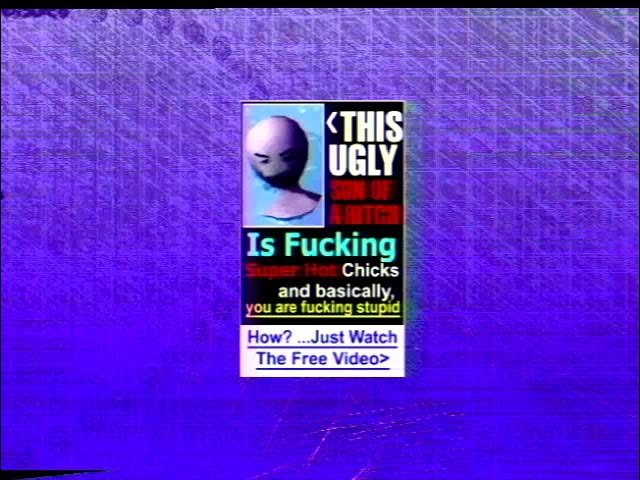
Pic. 5 the world isn't ready for this one
“
I ACTUALLY DIDN'T KNOW WHAT EXACTLY I WANTED TO PLAY. WHENEVER I DISOCVERED A NEW GENRE IT FELT LIKE A REVELATION
”
Why do you think All Singing got such a good reception on underground communities?
It helped that it came out early in the year, when the outsider house and techno fanbases were in the hunt for new material and there wasn’t as much material out. And my album was there to satisfy that demand. I didn’t have to promote it or anything: people dig deep to find hidden works that others haven’t found yet.
I think you cherish the most that which has taken you effort to discover, because you feel a personal connection to it and want to share that joy with others. If people felt that with my album, it makes me very happy.
A few weeks ago you played live in a virtual music festival. How was the experience?
It was definitely my first time doing something like that. With all the ugly stuff happening out there, No Agreements decided to put on a festival to gather money for the cause. It was Tony’s idea, who runs the label. He asked us to prepare a 20-30 minutes long set and send it to him within a week. Luckily I had some stuff laying around that I repurposed for the mix, changing it up a bit.
The best part was hearing my name being called out: “coming up next, Naked Flames!” And there were some very positive comments in the chat, this great feedback happening in real time. It was surreal since I’m part of my own bubble. I make my music on my own and just upload some stuff online, pretty antisocial in a way. It was a beautiful experience and the festival was great, except for one thing. It was originally going to take place in YouTube, until a group of trolls massively flagged it and the platform took it down, which is absurd and awful. Luckily the show was relocated to Twitch and it all went great there; we all had a blast and I loved being part of it.
End




